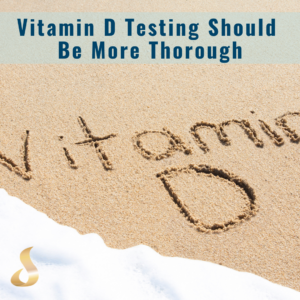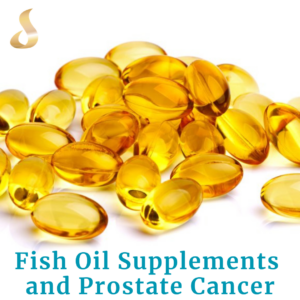What's On This Page?
ToggleStatins are some of the most commonly prescribed medications for lowering cholesterol. If you’re taking one, you’re likely aware of their role in reducing the risk of heart disease and stroke. However, statins are not without side effects, and one of their major impacts is on your body’s nutrient levels.
Statins can lead to deficiencies in several key nutrients, which may contribute to symptoms like fatigue, muscle pain, or brain fog. The good news is that supplementing with the right nutrients can often counteract these effects. Let’s explore the most important nutrients to consider if you’re taking a statin and the potential health problems that can arise if these deficiencies are not addressed. (For more on this, see my book Drug Muggers.)
1. Coenzyme Q10 (CoQ10)
Statins work by blocking an enzyme in your liver that’s responsible for cholesterol production. Unfortunately, this same enzyme is also crucial for producing CoQ10, a compound your body uses for energy production and antioxidant defense. Low levels of CoQ10 can result in muscle pain, weakness, and fatigue—common complaints among statin users. Find out HERE how CoQ10 relieves leg cramps.
What can happen: Without sufficient CoQ10, you may be at greater risk for muscle disorders (myopathy), chronic fatigue syndrome, and even heart failure due to reduced energy production in heart muscle cells. This very important article I wrote discusses heart function and shortness of breath, as well as how CoQ10 plays a role: Left Ventricular Hypertrophy of the Heart: 10 Critical Symptoms to Watch For.
What to take: Consider a CoQ10 supplement of 100-300 mg per day. Ubiquinol, the active form of CoQ10, is often easier to absorb and more effective, particularly for people over 40. See research here.
2. Vitamin D
Research suggests that statins can deplete vitamin D, a nutrient vital for bone health, immune function, and mood regulation. Low vitamin D levels may also worsen statin-induced muscle pain, compounding the problem. Take a few minutes to read my other BLOG on Vitamin D3 and how it can enhance the treatment of bipolar disease. You might also check out, 20 Unusual Signs of Vitamin D Deficiency.
What can happen: Vitamin D deficiency is associated with osteoporosis, frequent infections, autoimmune diseases, and depression. Prolonged low levels can contribute to muscle weakness and fractures.
What to take: A daily dose of 1,000-5,000 IU of vitamin D3 is typically safe and effective for most people. Pair it with vitamin K2 for better absorption and to protect arterial health. Read more here.
3. Statins Deplete Magnesium – Take Some!
Magnesium is a critical mineral that supports muscle relaxation, heart rhythm, and over 300 enzymatic reactions in your body. Statins can interfere with magnesium levels, potentially leading to muscle cramps, insomnia, or irregular heartbeats.
What can happen: A magnesium deficiency can cause hypertension, migraines, muscle pain, arrhythmias, and even anxiety or depression.
What to take: Eating salads or what others call “rabbit food” will provide some magnesium, but probably not enough. Supplements are going to work more effectively. Opt for a highly absorbable form like magnesium glycinate or magnesium malate, taking 200-400 mg daily. My Chelated Magnesium is a combination that includes these, and it’s gentle on the stomach. Learn more here.
A lot of people take magnesium, but is it just giving you diarrhea? Is it actually helping your bones stay strong? It’s a good question, and one I’ve answered in my other blog, Are You Taking the Right Kind of Magnesium? Pros and Cons of 5 Popular Types.
4. Selenium
Statins may reduce selenium levels, a mineral essential for thyroid function and antioxidant activity. Selenium is also crucial for heart health, making it a particularly important nutrient for those on statins.
What can happen: Deficiency in selenium is linked to hypothyroidism, weakened immune function, and increased oxidative stress, which can damage cells and accelerate aging.
What to take: A dose of somewhere between 50-200 mcg daily of selenium from a high-quality supplement or natural sources like Brazil nuts can help restore levels. If you’re eating the nuts, that’s only 4 nuts per day. You can also take a supplement that contains selenomethionine. Read more here.
5. Omega-3 Fatty Acids
While not directly depleted by statins, omega-3 fatty acids can counteract the inflammatory side effects some people experience with these medications. They’re also beneficial for heart health and brain function.
What can happen: Insufficient omega-3 intake is associated with chronic inflammation, cognitive decline, dry skin, and increased risk of heart disease.
What to take: Look for a fish oil supplement providing at least 1,000 mg of combined EPA and DHA daily. See studies here.
6. B Complex Vitamins (Especially B12 and Folate)
Statins can interfere with the body’s ability to use B vitamins effectively. B12 and folate are particularly important for maintaining energy levels and preventing homocysteine buildup, which can harm blood vessels.
What can happen: Low levels of B12 and folate are linked to anemia, neuropathy, fatigue, and elevated homocysteine, which increases cardiovascular risk. This my be interesting to you: Your Guide to B Vitamins: 6 Critical Reasons to Consider Mito B Complex.
What to take: A high-quality B-complex supplement with methylated forms of B12 (methylcobalamin) and folate (methylfolate) is ideal. Learn more here.
Careful what you buy: Why You Should Think Twice Before Buying B Complex Vitamins
7. Vitamin E
Statins can decrease vitamin E, a potent antioxidant that protects your cells from damage and supports immune function.
What can happen: A deficiency in vitamin E can lead to weakened immune response, oxidative stress, and muscle weakness.
What to take: Natural vitamin E supplements containing mixed tocopherols are best. A dose of 100-400 IU daily is generally safe and effective. Read more here.
8. Probiotics
Statins can disrupt your gut microbiome, potentially leading to digestive discomfort or changes in gut health. Probiotics help maintain a balanced gut flora, which is crucial for overall health and immune function.
What can happen: Imbalances in gut bacteria can cause diarrhea, constipation, frequent infections, and even contribute to conditions like irritable bowel syndrome (IBS).
What to take: Look for a probiotic with multiple strains, such as Lactobacillus and Bifidobacterium, and aim for at least 10 billion CFUs daily. See research here.
Final Thoughts
If you’re taking statins, supplementing with these nutrients can help mitigate side effects and support your overall health. Before starting any new supplement, consult with your healthcare provider to ensure it’s appropriate for your specific needs and doesn’t interfere with your medication.
My goal is to help you avoid further diagnoses and diseases caused by the “drug mugging effect” of statins. You can lower cholesterol naturally, but if you need to follow your doctor’s orders, you can still take steps to protect yourself from nutrient deficiencies and their associated risks. For a deeper dive into this topic, check out my book Drug Muggers, which explains how common medications deplete essential nutrients and what you can do about it.

Suzy Cohen, has been a licensed pharmacist for over 30 years and believes the best approach to chronic illness is a combination of natural medicine and conventional. She founded her own dietary supplement company specializing in custom-formulas, some of which have patents. With a special focus on functional medicine, thyroid health and drug nutrient depletion, Suzy is the author of several related books including Thyroid Healthy, Drug Muggers, Diabetes Without Drugs, and a nationally syndicated column.




